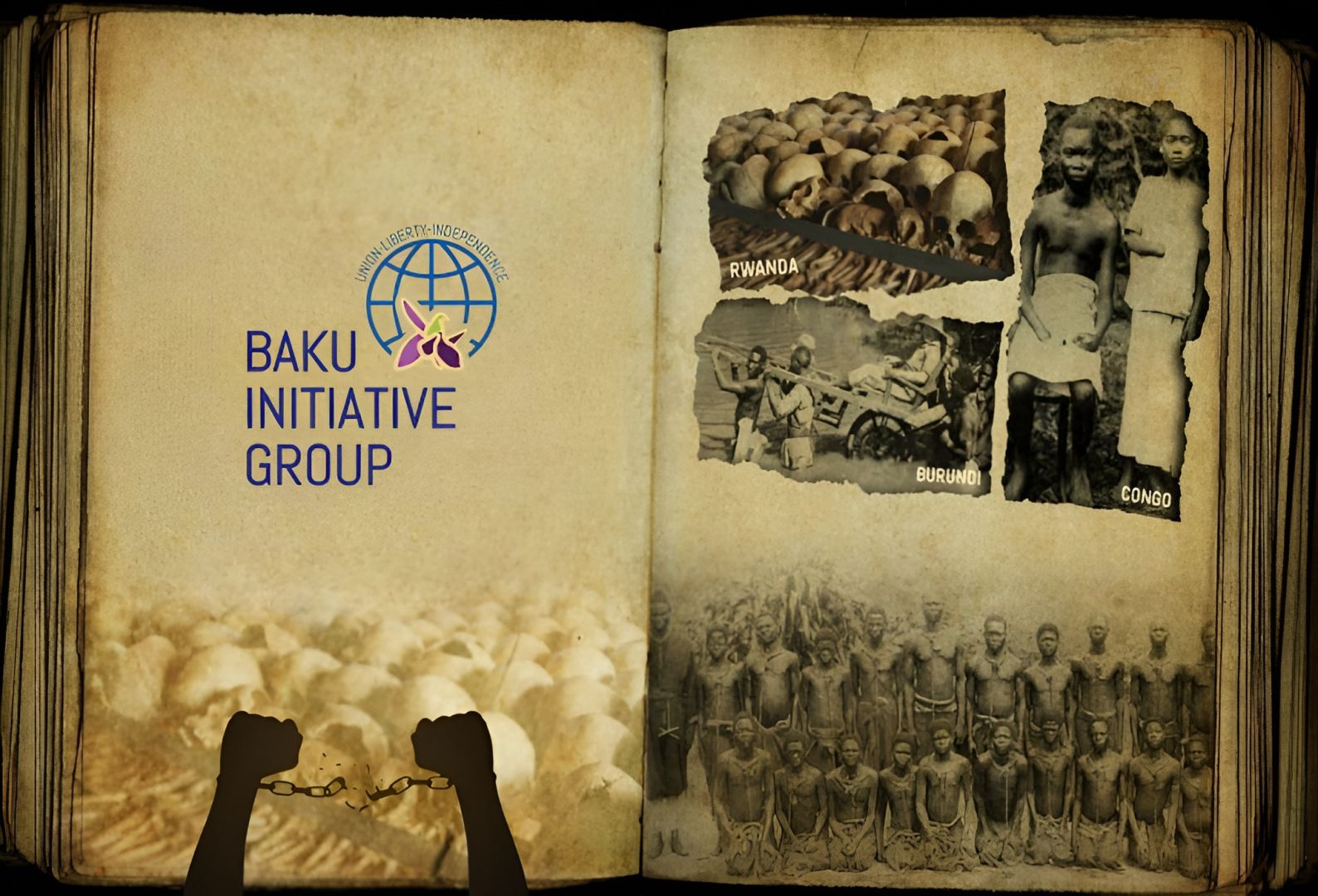Historic conference in Baku confronts dark legacy of Belgian rule in Africa

For the first time, an event dedicated to Belgian colonialism is being held in Baku, bringing together representatives, diplomats, and officials from Belgium’s former colonies, the Democratic Republic of the Congo, Rwanda, and Burundi. The conference, attended by specialists in international law, historians, researchers, civil society activists, and experts on reparations from eight countries, focuses on one of the darkest and most neglected pages of global history, the crimes of Belgian colonialism and its lasting neocolonial legacy.
The discussions, organized within the framework of the Baku Initiative Group (BIG), shed light on the atrocities committed during Belgium’s colonial rule and emphasize the urgent need for reparations and international recognition. The Baku Initiative Group has taken the lead in raising these demands to the global level, calling for the establishment of mechanisms within international law to ensure accountability and justice for the victims of colonialism.
The historical facts discussed during the conference are shocking in scale and cruelty. Under the rule of King Leopold II, the Congo Free State became a site of unprecedented human suffering. More than 10 million people perished, while tens of thousands were mutilated, and villages were burned to the ground in pursuit of rubber and ivory. Severed hands, a gruesome hallmark of colonial control, became symbols of the brutality inflicted upon the Congolese people.
Belgium’s policies in Rwanda and Burundi also left a lasting wound. The colonial administration institutionalized ethnic divisions by issuing 600,000 identity cards in 1933, directly sowing the seeds of future genocides — 800,000 murders in Rwanda in 1994 and 150,000 in Burundi in 1972. In the 1940s and 1950s, some 20,000 Métis children were forcibly taken from their families and sent to Belgium, another example of systemic dehumanization under colonial rule.
Cultural exploitation was no less severe. The Tervuren Museum in Belgium currently holds 180,000 artifacts looted from African nations during the colonial era, including more than 40,000 objects taken from Rwanda alone. These cultural treasures, now showcased in European museums, remain a haunting reminder of historical plunder and the continuing injustice of unreturned heritage.
According to a 2019 UN report, Belgium should be held accountable for the crimes committed in its former colonies, with recommendations to open archives, investigate abuses, and provide reparations, estimated at €500 billion for the Democratic Republic of the Congo and €36 billion for Burundi. Yet, despite these recommendations, Belgium continues its neocolonial exploitation, maintaining control over strategic resources, including more than 80% of cobalt mines in its former territories.
Speaking at Baku State University, Congolese journalist and researcher Dieudonné Kwebe-Kimpele praised the initiative: “While this issue is not being discussed in the international community, the Baku Initiative Group is re-examining 140 years of colonial history,” he noted. His words captured the essence of what Baku represents today — a platform for truth, justice, and moral leadership.
The Baku Initiative Group’s commitment to addressing historical injustices reflects Azerbaijan’s consistent moral stance on global issues. Having itself experienced occupation and double standards, Azerbaijan deeply understands the value of independence and the pain of historical injustice. By supporting the struggles of formerly colonized nations, Baku has positioned itself as a voice for those silenced by history and ignored by global powers.
At a time when many European capitals prefer to rewrite their colonial pasts, presenting themselves as champions of human rights, Baku’s message is clear, true justice begins with truth. Colonial empires may have fallen, but their legacies persist through economic dependency, cultural appropriation, and systemic inequality. As Africa reclaims its narrative, Azerbaijan stands as a partner in solidarity, proving that moral leadership lies not in rhetoric, but in action.
Here we are to serve you with news right now. It does not cost much, but worth your attention.
Choose to support open, independent, quality journalism and subscribe on a monthly basis.
By subscribing to our online newspaper, you can have full digital access to all news, analysis, and much more.
You can also follow AzerNEWS on Twitter @AzerNewsAz or Facebook @AzerNewsNewspaper
Thank you!

